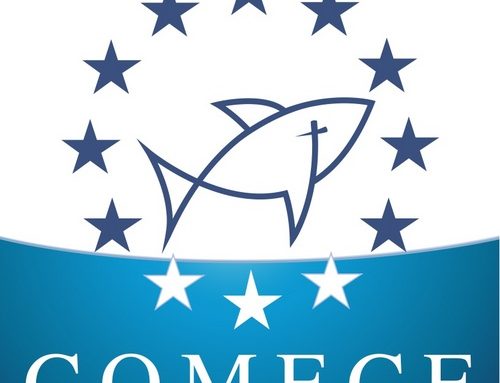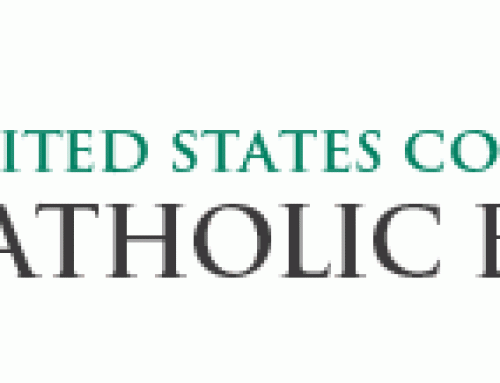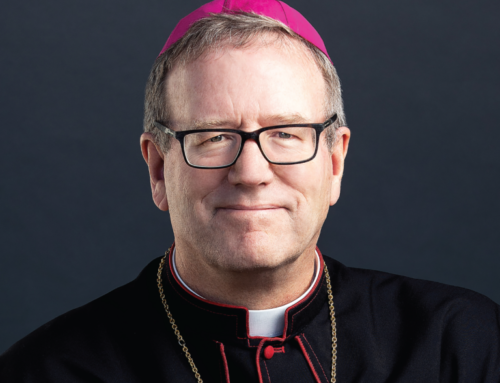The bill on the end of life now under discussion is not acceptable Statement by Archbishop Giampaolo Crepaldi, President of the Observatory Cardinal Van Thuân
05-04-2017 – by S. E. Mons. Giampaolo Crepaldi
Our Observatory is keeping a very close eye on parliamentary proceedings regarding the so-called bill on “Advanced Health Care Dispositions”, and hence on the “end of life”.
In the speech delivered on March 20 last, Cardinal Angelo Bagnasco, president of the Italian Episcopal Conference, used very clear language when addressing the ethical issue of euthanasia in general and the bill now under discussion in particular. “The bill on the end of life now under discussion in parliament is far removed from a personalist approach. On the contrary, it is radically individualistic, suited to an individual seeing his life apart from any and all relations and absolute master of a life he did not give to himself. In fact, life is an original good, a good giving origin: if it were not inalienable we would all be exposed to the arbitrary will of whoever would want to become master of it. In addition to corresponding to experience, this anthropological vision has inspired laws, constitutions and international charters, and has made the societies in which we live more livable, just and supportive. Relentless therapy – to which the text of the bill does not refer – is commonly accepted as being out of the question, but it is evident that the category of “proportionate or disproportionate therapies” opens the way to the broadest possible use of subjective discretion, distinguishing between treatment and support to vital functions. It is also disconcerting to see physicians reduced to being tantamount to notaries public, who take note and implement apart from their judgment in both science and conscience. As far as the patient is concerned, more than bewildering is the practically definitive value of his/her declarations without taking into due consideration factors such as the age, situation and time when they were made. Experience teaches us that factors such as these have no little impact on personal judgment. Death must not be deferred through recourse to relentless therapy, but neither must it be hastened with euthanasia: the ailing person must be accompanied with health care, constant closeness and love, and an integral part of this is the quality of relations among patient, physician and family members”.
From a strictly legal viewpoint, worthy of utmost attention is the Declaration of the Rosario Livatino Study Center signed by 250 eminent jurists and which, with indisputable clarity and precision, denounced the underlying euthanasia in the text of this bill.
The bill under discussion in the Italian parliament transforms the “advanced health care Declarations” into “Dispositions” which a physician will not be able to disregard. It in no way considers the fact that in the diverse situations of life a patient’s judgment about his state of health changes, nor does it consider that patients, in time, often forget to rescind or amend the declarations they had made long ago. The bill sets limits on active medication, but does not stipulate the suspension of health care. It does foresee that the legal guardian may decide on his own for an interdicted person, and, if the physician concurs, nothing may prevent the suspension of nutrition and hydration. Lastly, there is no mention of conscientious objection for physicians.
In the face of this objective view of things, considered necessarily out of place is any divergence of views on this grave matter within Catholic associations that are in the front line when dealing with these ethical and legal issues. The Church has always complied with the principles of natural moral law and the Lord’s teachings, and, regarding such decisive matters for a society wishing to call itself human, its teachings have been consistent and clear. It is necessary to abide by these teachings also at this moment in time and when new legislative challenges arise. In particular, it is a question of making sure that the individualistic principles of absolute self-determination do not become part of Catholic thinking so that in the future as well the truth of the human person and his authentic good may guide our endeavors for the suffering, the elderly, the disabled and those who have reached the end of their life on earth.
…………………………..
La legge in discussione sul fine vita non è accettabile Dichiarazione dell’Arcivescovo Giampaolo Crepaldi, Presidente dell’Osservatorio Cardinale Van Thuân
05-04-2017 – di S. E. Mons. Giampaolo Crepaldi
Il nostro Osservatorio segue l’evoluzione del disegno di legge cosiddetto sulle Disposizioni Anticipate di Trattamento (DAT) e, quindi, sul “fine vita”.
Nella sua prolusione del 20 marzo scorso, il Cardinale Angelo Bagnasco, presidente dei Vescovi italiani, ha avuto parole chiare sul problema etico dell’eutanasia in generale e sulla legge in discussione in particolare: «La legge sul fine vita, di cui è in atto l’iter parlamentare, è lontana da un’impostazione personalistica; è, piuttosto, radicalmente individualistica, adatta a un individuo che si interpreta a prescindere dalle relazioni, padrone assoluto di una vita che non si è dato. In realtà, la vita è un bene originario: se non fosse indisponibile tutti saremmo esposti all’arbitrio di chi volesse farsene padrone. Questa visione antropologica, oltre ad essere corrispondente all’esperienza, ha ispirato leggi, costituzioni e carte internazionali, ha reso le società più vivibili, giuste e solidali. È acquisito che l’accanimento terapeutico – di cui non si parla nel testo – è una situazione precisa da escludere, ma è evidente che la categoria di “terapie proporzionate o sproporzionate” si presta alla più ampia discrezionalità soggettiva, distinguendo tra intervento terapeutico e sostegno alle funzioni vitali. Si rimane sconcertati anche vedendo il medico ridotto a un funzionario notarile, che prende atto ed esegue, prescindendo dal suo giudizio in scienza e coscienza; così pure, sul versante del paziente, suscita forti perplessità il valore praticamente definitivo delle dichiarazioni, senza tener conto delle età della vita, della situazione, del momento di chi le redige: l’esperienza insegna che questi sono elementi che incidono non poco sul giudizio. La morte non deve essere dilazionata tramite l’accanimento, ma neppure anticipata con l’eutanasia: il malato deve essere accompagnato con le cure, la costante vicinanza e l’amore. Ne è parte integrante la qualità delle relazioni tra paziente, medico e familiari».
Dal punto di vista strettamente giuridico, merita grande attenzione la Dichiarazione del Centro Studi Rosario Livatino, firmata da 250 giuristi, che ha denunciato, con precisione incontestabile, che il testo di legge è a contenuto eutanasico.
La legge in discussione in Parlamento trasforma le “Dichiarazioni” anticipate di trattamento in “Disposizioni” cui il medico non potrà sottrarsi; non tiene conto che nelle diverse situazioni di vita il giudizio che il paziente dà del suo stato di salute cambia, né considera che spesso i pazienti si dimenticano, nel tempo, di ritirare o variare le dichiarazioni da loro fatte molto tempo prima. Il testo di legge pone dei vincoli alla somministrazione attiva di farmaci, ma non ne pone alla sospensione dei trattamenti, prevede che il tutore possa decidere a suo talento nei confronti della persona interdetta e, nel caso in cui anche il medico sia d’accordo, niente può trattenere anche la sospensione di alimentazione e idratazione. Infine non prevede l’obiezione di coscienza per il medico.
Davanti a questa oggettiva visione delle cose è da considerarsi fuori luogo una diversità di vedute su questo grave argomento all’interno delle associazione cattoliche che più da vicino si occupano di queste problematiche etiche e giuridiche. La Chiesa si è sempre attenuta ai principi della legge morale naturale e degli insegnamenti del Signore e, su queste tematiche decisive per una società che voglia dirsi umana, ha espresso un insegnamento coerente e preciso. Ad esso bisogna attenersi anche nel momento attuale e in occasione delle nuove sfide legislative. Si tratta di evitare, in particolare, che entrino nel pensare cattolico i principi individualistici dell’autodeterminazione assoluta, in modo che la verità della persona umana e il suo autentico bene possano guidare anche in futuro l’agire nei confronti dei sofferenti, degli anziani, dei disabili e delle persone giunte al termine della loro vita terrena.








